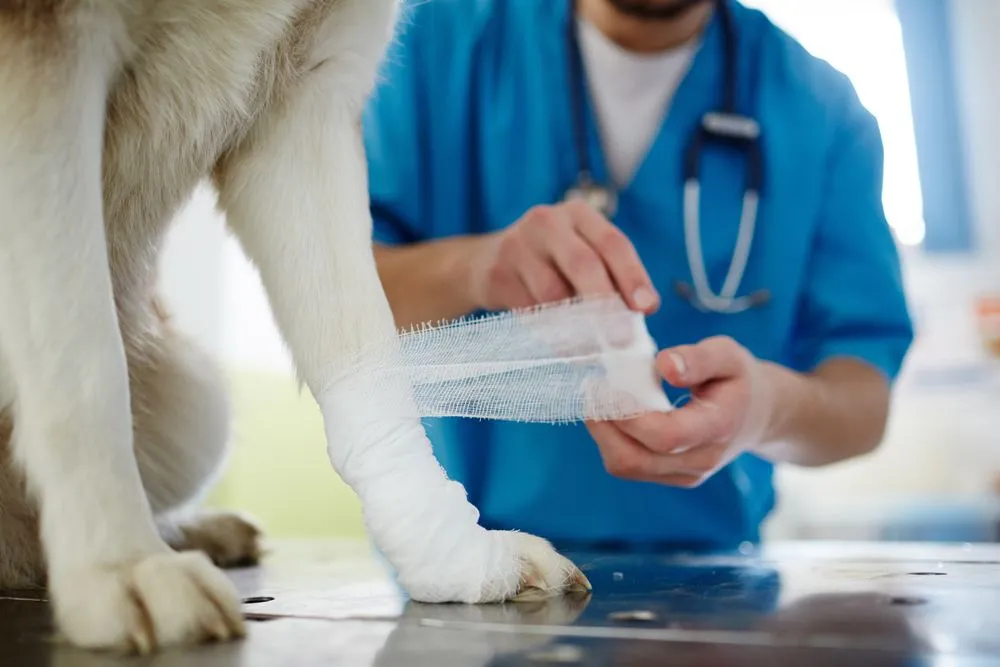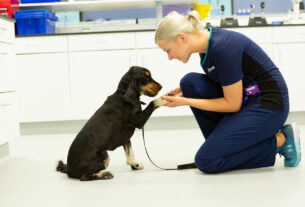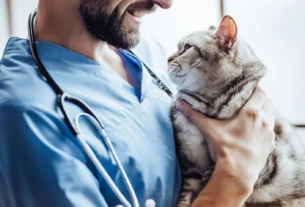As owners, we do everything possible to keep our furry friends healthy and happy. However, health emergencies can happen to our pets at any hour of the day or night. In such situations, having a 24-hour veterinary hospital nearby makes a difference. These facilities offer their services around the clock, being fully equipped to manage a wide array of emergencies, from those involving injuries and sudden illnesses to ongoing needs for critical care. What follows is a step-by-step guide on what you might commonly expect regarding the types of services 24-hour veterinary hospitals in your state provide, where to find one, and what to expect during an emergency visit.
What Makes 24-Hour Veterinary Hospitals Essential?
Just like human beings, pets also have health problems that may not always be restricted to regular office hours. From sudden allergic reactions to accidental poisoning or traumatic injuries, there are times when immediate interventions are called for-namely, those provided by a 24-hour vet hospital. It is in these very hospitals that pets are continuously monitored and cared for in crisis so that timely interventions may be provided by professionals. This quick response time and special services are many times the differences in life and death with many animals.
What emergency pet service are you looking:
- Emergency vet near me
- 24/7 veterinary services
- Urgent pet care
- After-hours vet clinic
- Free pet care service
- Emergency pet care
- Veterinary emergency service
- Vet open now
- 24-hour vet hospital
Free pet care services:
Services Provided by a 24-Hour Veterinary Hospital
Those veterinary hospitals that operate on a 24/7 schedule provide various types of services that range from emergent to routine care. A general overview will include:
1. Emergency Services: Such critical situations are duly catered for in 24-hour veterinary hospitals since they can afford immediate, lifesaving interventions. They mostly operate on an emergency triage system in which pets are assessed in a jiffy to prioritize the gravity of their conditions for treatment.
2. Critical Care Units: Some have critical care units internal to 24-hour facilities; these are for pets who need extended periods of observation and therapy, much like human hospitals. The critical care units are staffed with veterinarians and technicians specializing in emergency medicine so pets can be attended to at any time during the day or night.
3. Advanced Diagnostic Equipment: Many 24-hour hospitals are fully equipped with advanced diagnostic equipment, such as X-ray, ultrasound, and laboratory facilities. In fact, all this allows doctors to identify and treat problems out there and then, thus saving a lot of precious time required for timely care.
4. Surgical Services: In the event of surgical emergencies like intestinal blockages, fractures, or internal bleeding, immediate intervention is possible in a 24-hour veterinary hospital. Additionally, some of these hospitals maintain a panel of specialized surgeons who can be available on call for complicated procedures.
5. Specialist Services: With some facilities, there may be available specialists in cardiology, neurology, or oncology. This is quite often very helpful for pets with chronic and serious problems that require special treatment.
6. General Care: Besides emergency services, most 24-hour hospitals offer general care, such as vaccinations, wellness exams, and dental cleaning. These will enable you to bring your pet in during those times when it’s more convenient for your schedule.
How to Find 24-Hour Veterinary Hospitals in Your State
Locating a 24-hour veterinary hospital near your home is part of planning in preparation for an emergency any of your pets may encounter. Here are some ways to find a 24-hour veterinary hospital in your state:
1. Online Directories: Some websites, like the American Animal Hospital Association AAHA or the American Veterinary Medical Association AVMA, maintain listings of all veterinary hospitals across the country. These usually allow filtering on emergency or 24-hour care facilities to locate one nearby.
2. Google and Yelp Reviews: Online reviews on websites, like Google Maps or Yelp, can be very instrumental in learning about the quality of care different 24-hour veterinary hospitals in your locality provide. Try to find mentions about emergency experiences to learn more about responsiveness and professionalism among the staff.
3. Social Media Recommendations: Many pet owners post about their experiences with 24-hour veterinary hospitals on social media, especially local Facebook groups or neighborhood apps like Nextdoor. This can be a great way to get honest recommendations from other pet owners in your community.
4. **Veterinary Referrals**: If your primary veterinarian does not always have 24-hour availability, they should have a trusted referral to an emergency hospital in your area. It is not a bad idea to ask about emergency options during routine visits so you are prepared if the need arises.
What to Expect During an Emergency Visit
Upon arriving at a 24-hour veterinary hospital for such an emergency, the staff is likely to start with a quick assessment to prioritize according to your pet’s condition. That is what is referred to as triage; this way, pets with urgent needs get attended to first. You will subsequently be asked to provide any applicable medical history and an explanation of the symptoms concerning your pet. After discussion of treatment options with the veterinarian, they will take all steps necessary to stabilize your pet so the problem can be addressed.
Tips for Managing an Emergency Visit
1. Remain Calm: Obviously it is an overwhelming time, but being as clear as possible will help you to better communicate your information with the veterinary staff. If at all possible, gather any medical records or information regarding your pet’s recent health history.
2. Know Your Options: Emergency care can get very expensive, and so it is wise to have a plan in place. Many hospitals offer payment plans or take pet insurance to help with the expense during such critical moments.
3. Keep Emergency Contacts: Save the phone numbers and addresses of your selected 24-hour veterinary hospitals in your phone’s memory or write them down on a separate piece of paper for your emergency contact list at home. These will save precious minutes, especially when every minute may count.
Knowing there is a 24-hour vet nearby may just make all the emotional difference, and immediately getting your pet attended to in case of an emergency. Such valuable facilities do not only provide services for emergency situations but also advanced diagnostic tests, critical care, and surgery. Assuring health and well-being for our pets, these facilities are really indispensable. Once you find and familiarize yourself with the nearest 24-hour vet hospitals, then you are one step ahead in most any situation, being prepared to give your pet the best possible care during those unexpected moments.





